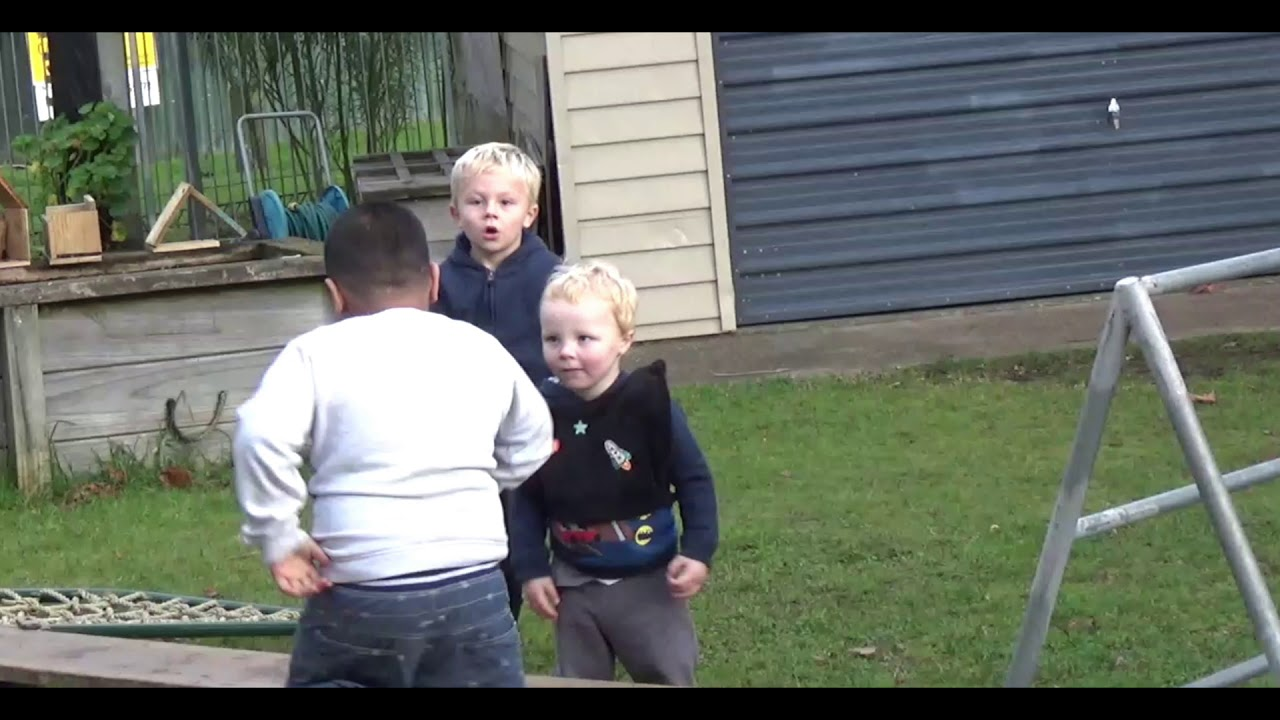In what ways did teachers alter their pedagogical practice to support effective dialogues with two year-olds?
After analysing videos and associated dialogues teachers realised that they were implicated in two year-old dialogues - no matter whether they were directly involved or not.
This led the teachers to re-think some of their pedagogical strategies, and reinforce others.
Teachers' increased appreciation of two year-olds as learners, combined with the important role of peers, oriented them away from thinking they needed to make drastic changes to the environment and, instead towards trusting and appreciative relationships at the centre of all they do.
Watch the following videos and listen to each teaching team talk about how they altered their pedagogical practice. "We didn't have to make as many changes to our environment as we thought we would need to":
First listen to the teachers from Avenues Kindergarten
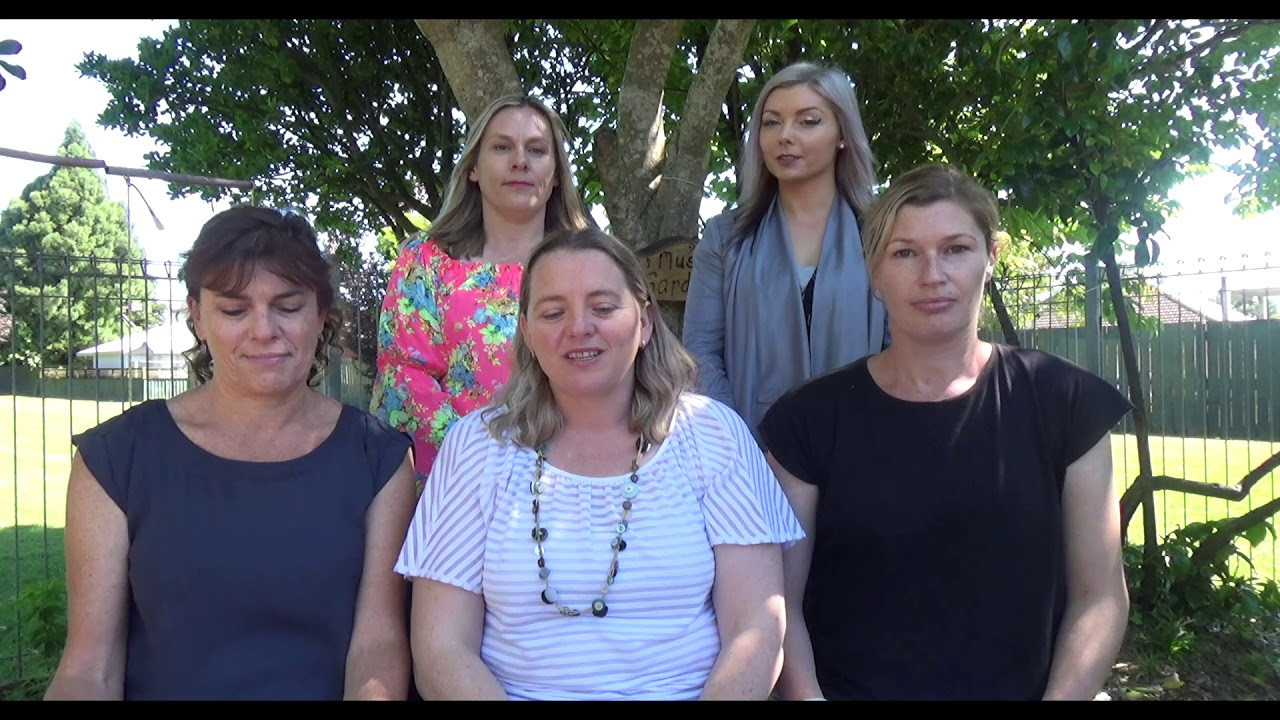
Now listen to the teachers from Gate Pa Preschool
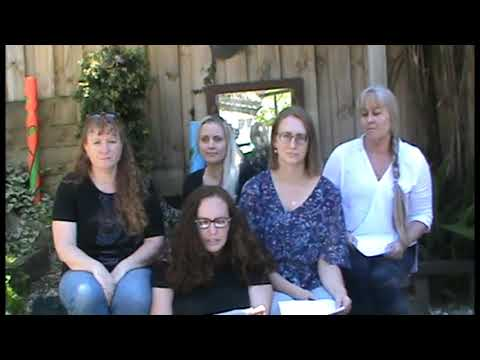
Changes to Policy and Practice
Understanding and appreciating these dialogues with two year-olds led teachers to make a number of changes to their policies and practices, to reflect the shifts in their pedagogies.
Here you can read new policies adopted at Gate Pa Preschool and Avenues Kindergarten, as well as reflections from teachers involved in our research.
We now recognise the enormous role of peers for two year-olds in our setting. We are also seeing the enormous role siblings play and thinking about our whaanau models of delivery in this way. Having them together as a family is actually quite important.
Teacher
Avenues Kindergarten
Social competence policy - Two Year Olds
We understand and value alterity and agency especially with our two-year-olds. Behaviours that are often viewed as problematic, need to be considered carefully first. These moments are seen as significant learning moments for children.
Transitions within the Kindergarten - Settling
A settling plan between a teacher and parent may be appropriate. All teachers are involved in the settling plan in case one teacher is away. Where a child chooses to be nearby a particular teacher, if they are younger, this will not be discouraged, but viewed as a platform to build a strong relationship with one teacher so they can then catapult themselves into the life of the kindergarten and form relationships with others. Initially a key teacher supports the child, however this is constantly evaluated as the child’s preferences are considered. Teachers will support one another to allow the key teacher to spend time with that child and show flexibility with rostered duties. This allows the key teacher to slow down, take time and envelope our new child with Aroha/love and support.
This research has helped us appreciate our existing spaces and we trust our two year-olds to take calculated risks with the support of peers and us.
Teacher
Gate Pa Preschool
Positive Guidance Policy & Procedures - Developing social competence
Offer a vibrant, developmentally appropriate, spontaneous and planned curriculum, ensuring it is both safe and challenging. The environment will include a sufficient range, quantity of equipment and materials to meet the individual developmental needs and preferences of every child; While group activities are offered there are opportunities and places for children to watch activities or to be ‘out-of-the group’, on their own; particularly 2 year olds.
Asking two year-olds to sit for long periods on the mat is actually cruel. We have shortened these and other 'wait' times and altered our expectations of two year-olds in these experiences. Maximum of 3-5 minutes now. If the two year old wants to leave they can. We recognise that this is a limiting expectation.
Teacher
Catherine shares some of the changes they have made to mat time:
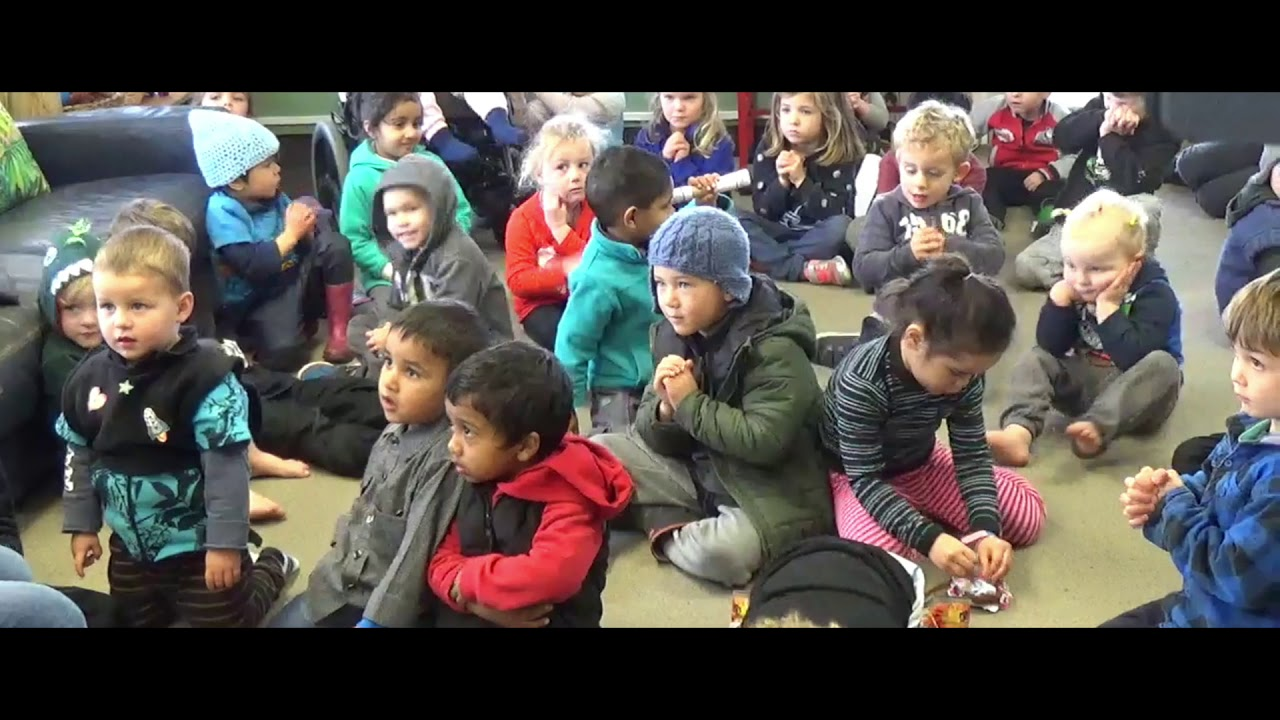
The only thing we have changed is to lower the kai tables, to add a rocking seat to mat time and to give more choices within routines. We have, however, changed our staffing to ensure that we have an extra staff member during mid morning when we have a lot of nappies to change - going from 4:40 to 5:40 - and we went up to 30 children in the afternoon to accommodate this, as we know how important these routines are for our two year-olds. They can't change their own nappy and this is obviously one of the few things their older peers cannot assist them with (although we now realise there is a lot more they can do than what we previously thought).
Teacher
Changes to Assessment
Assessment example: Stories about learning in the moment
Before this research we were too focused on outcomes, we were unable to tell the stories that really celebrated two year-olds in the moment or who are learning in ways that cannot be depicted in a linear manner ... Can we not just celebrate this learning in the moment, for what it is, not what it might become or that we make it look like it can become?
Teacher
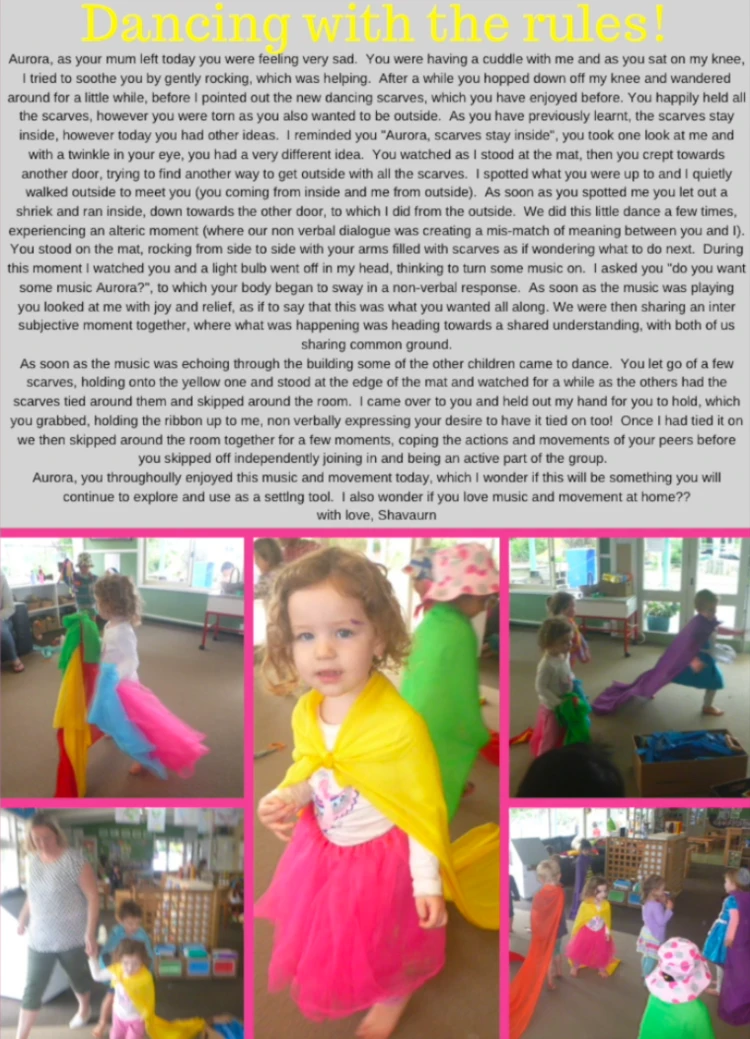
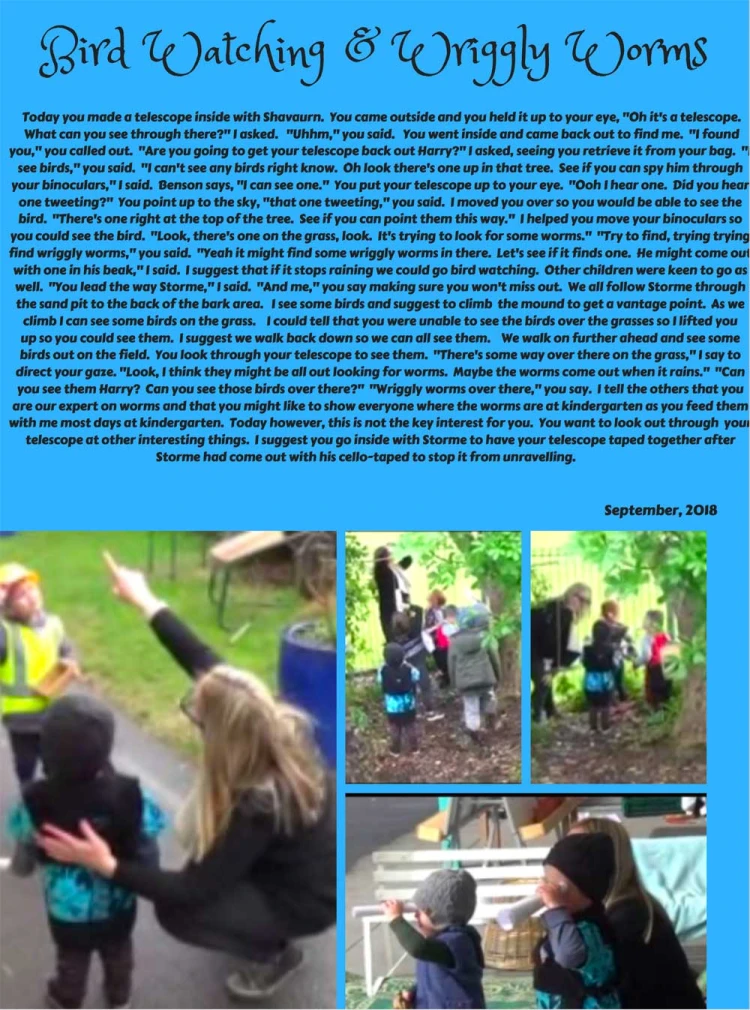
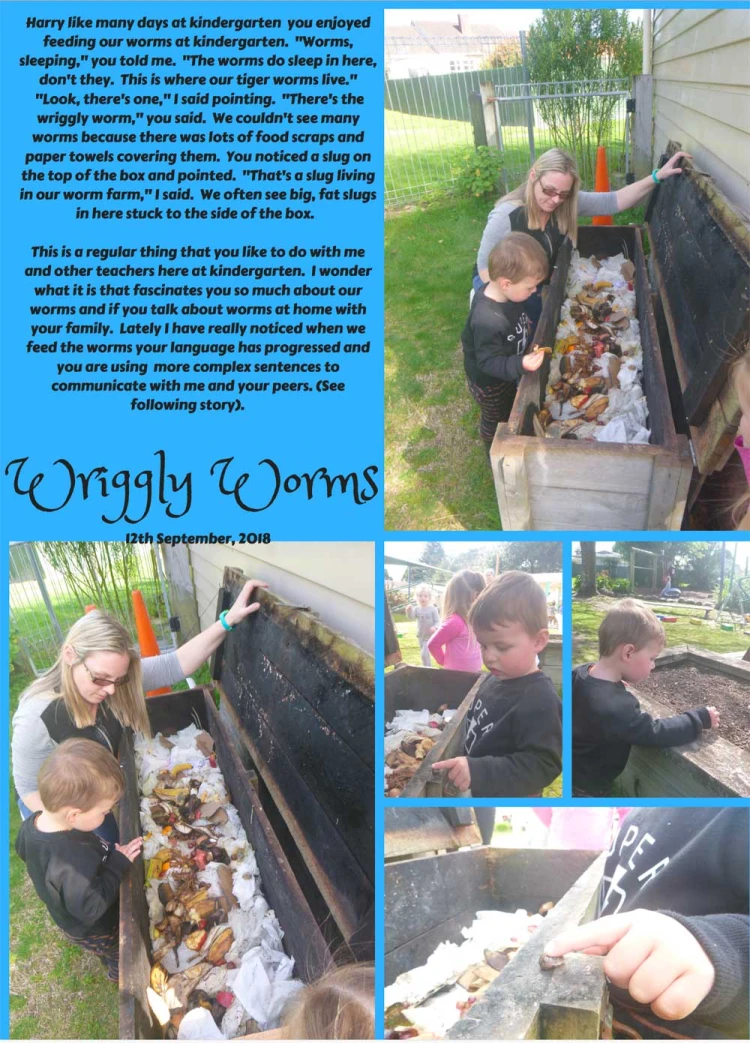
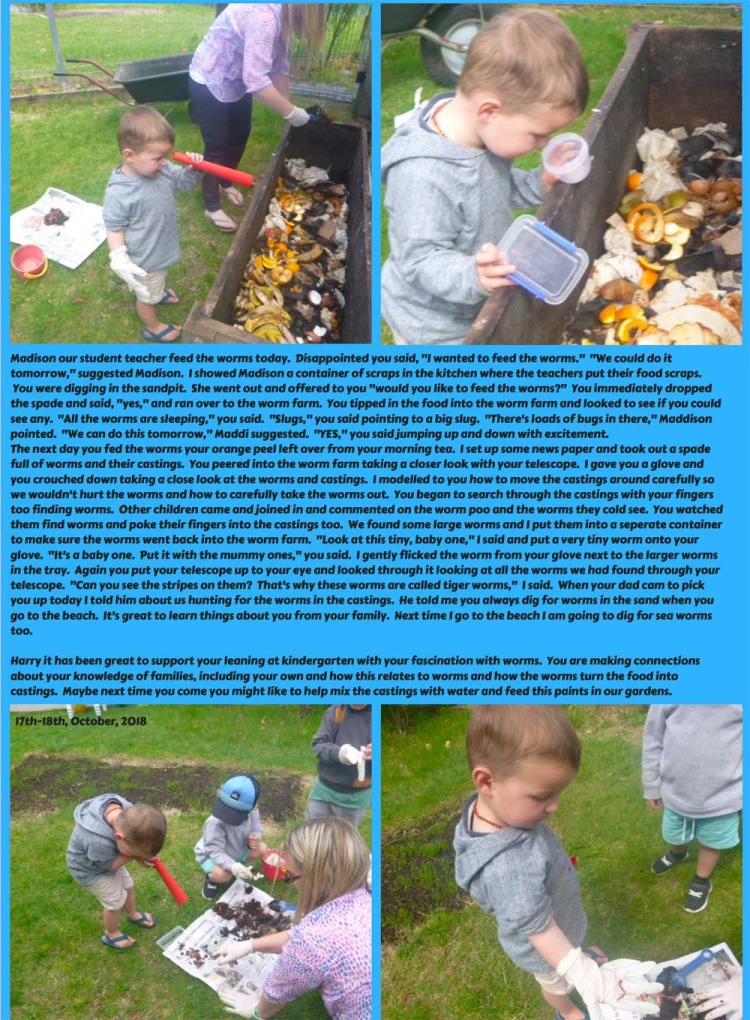
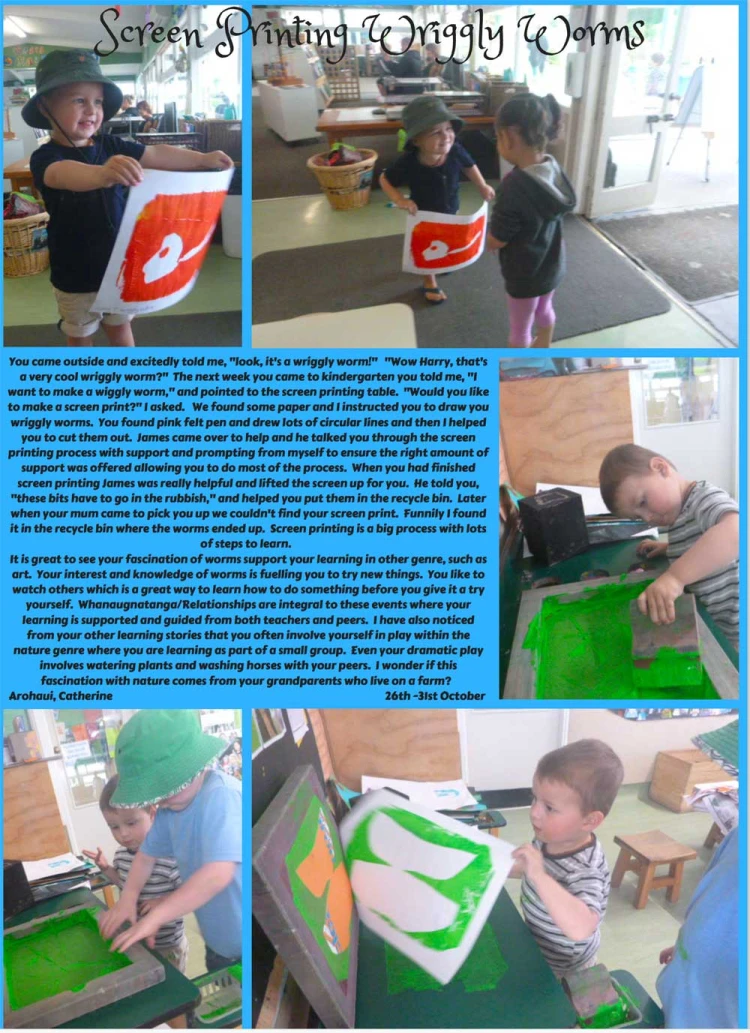
All I know is learning is far more complex and intertwined than we will ever know, which is why I have found writing these interweaving stories so challenging than it was before!
Teacher
Audio - Assessment shifts
Writing the "worm" story
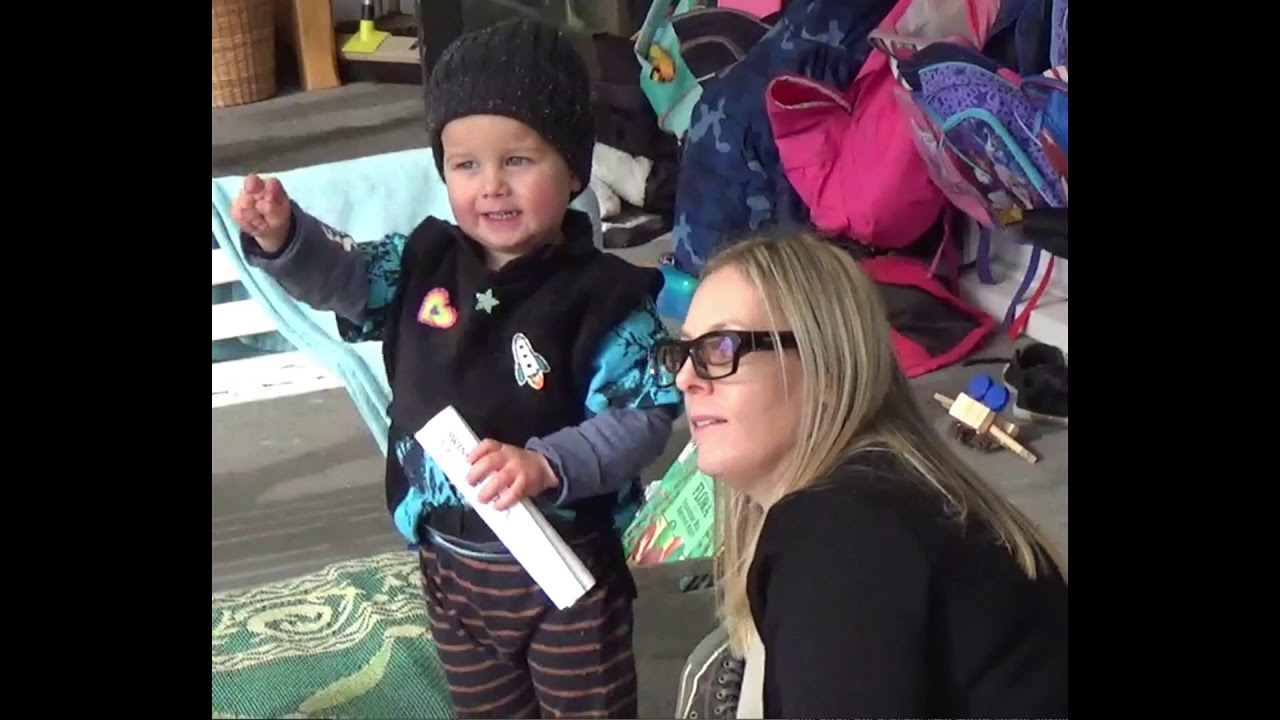
Learning story: Kapa O Pango

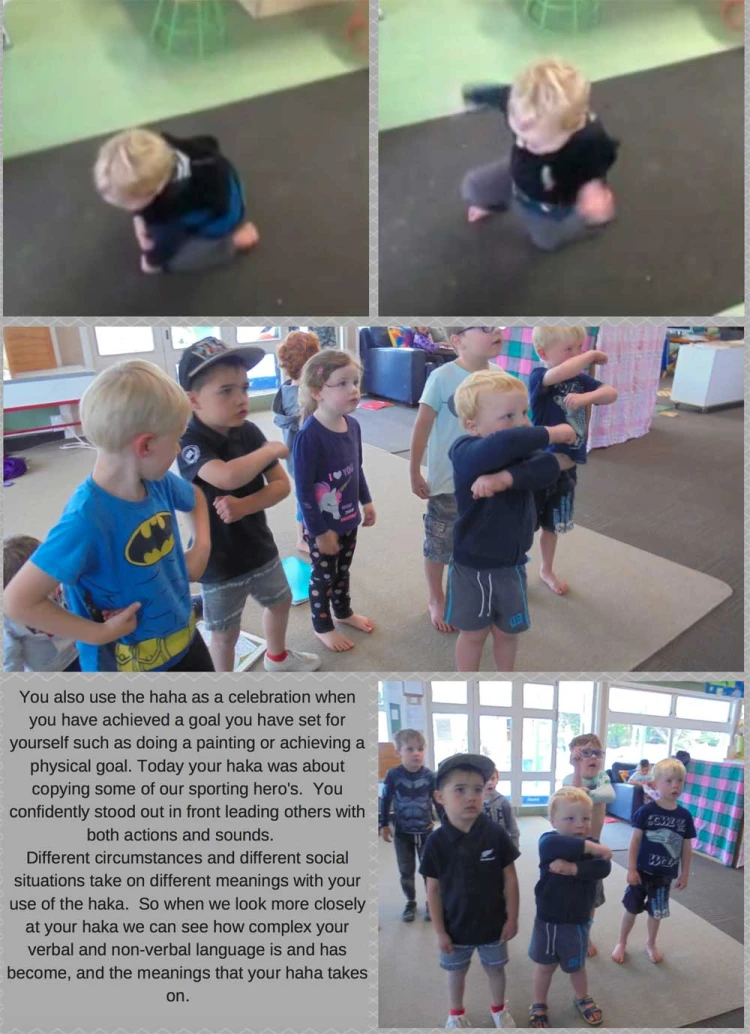
Our learning stories used to give supremacy to the verbal but not anymore! We have recognised that learning takes place well beyond the rules and we are seeing those alteric moments as something to celebrate now. It's given us a license to document those moments. In the past you have those children who might be doing things that 'go against the grain' but you would never document that. Whereas, with a dialogic perspective you can actually underpin that as crucial learning.
Teacher
Audio: A teacher's observation of the same non-verbal language in different contexts
"It's significant for his learning, because we can see how complex his non-verbal language is. Rather than seeing him as a non-verbal child, he is actually a very complex communicator."
